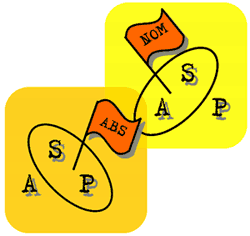Project Members
- Michael Cysouw
- Søren Wichmann
- Corinna Handschuh
Marked Nominative/Absolutive Case Systems

In most languages, a form that encodes accusative case will be longer than one which encodes nominative case. This is a well-known cross-linguistic generalization. In contrast, there are a few languages in which the nominative case is marked relative to the accusative. This project investigated these exceptional cases to learn more about the possibilities of human languages.
The goal of this project was to study the geographical distribution, typology and diachrony of this rare type of case system, which we called 'marked nominative/absolutive'. The defining characteristic of these systems is that there is an overt case-morpheme for the nominative/absolutive case (i.e., the case that is shared between intransitive and transitive constructions), in contrast to a non-overt (zero) morpheme for the accusative/ergative case. We investigated commonalities and differences among the anomalous case systems and relate them to case systems in general, to issues of formal vs. functional markedness, and, where possible, we shed light on the origins and developments of the case systems.
This project is a member of the DFG-funded Forschergruppe "Grammatik und Verarbeitung verbaler Argumente".
Publications
Wichmann, Søren. 2009. Case relations in a head-marking language: verb-marked cases in Tlapanec. In: Andrej Malchukov and Andrew Spencer (eds.), The Handbook of Case. Oxford: Oxford University Press.